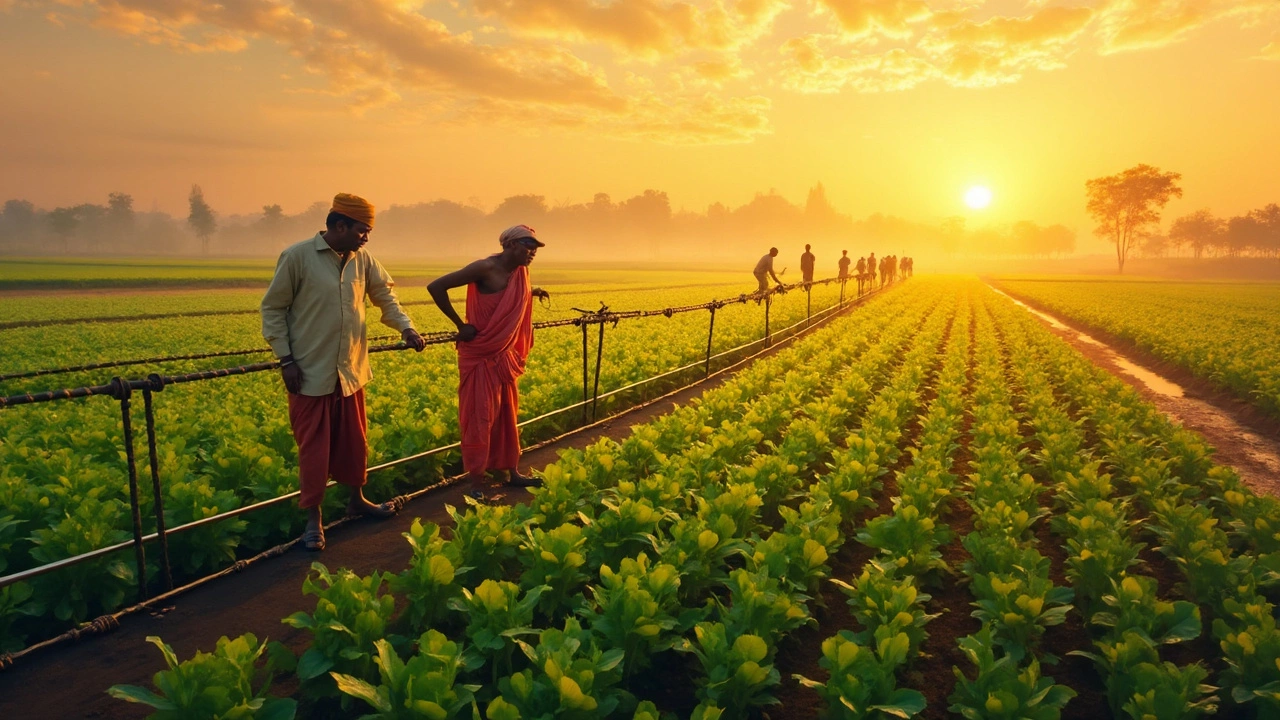Agriculture Insights: Sustainable Practices and Trends
When working with Agriculture, the practice of cultivating soil, growing crops, and raising livestock to meet human needs. Also known as farming, it shapes food security, rural livelihoods, and environmental health.
One major direction today is Sustainable Farming, a set of methods that aim to reduce resource waste while keeping yields stable. Sustainable farming requires soil health, the ability of soil to support plant growth, retain water, and host beneficial organisms. Good soil health boosts crop resilience and cuts fertilizer use. Another key piece is water management, strategies like drip irrigation, mulching, and rainwater harvesting that match water supply to plant demand. Effective water management influences agriculture yields, especially in India's varied climates.
Why Agriculture Matters Today
Agriculture encompasses everything from small backyard gardens to large industrial farms. It requires a mix of traditional knowledge and modern tech – think soil testing kits, sensor‑based irrigation, and data‑driven crop planning. When crop diversification improves soil health, farmers also gain market flexibility, reducing risk if a single crop fails. These relationships form a loop: better soil, smarter water use, and varied crops create a resilient system that can handle climate shocks.
Take container gardening as an example. A recent guide shows that daily watering isn’t a must; testing soil moisture first saves water and keeps roots happy. That tip ties right back to water management and soil health – two pillars of sustainable agriculture. Similarly, drip‑irrigation under mulch can cut evaporation by up to 50%, a practical win for anyone looking to stretch limited water supplies.
Beyond the garden, larger trends are reshaping Indian agriculture. The push for low‑carbon farming is driving interest in no‑till methods, which keep soil structure intact and lower fuel use. Meanwhile, a surge in demand for high‑value crops like aromatic herbs or specialty rice is encouraging farmers to explore crop diversification, opening new income streams without expanding land use.
Economic impact is another side of the story. Manufacturing of farm equipment, production of organic fertilizers, and processing of harvested crops all feed into local economies. When a community adopts sustainable practices, job creation follows – from soil‑testing technicians to irrigation designers. This ripple effect demonstrates how agriculture links directly to societal welfare.
Technology also plays a starring role. Sensors that monitor soil moisture, pH, and nutrient levels feed data into mobile apps, letting growers make real‑time decisions. Such tools turn the age‑old practice of farming into a data‑rich activity, aligning with the broader push for smart agriculture across India.
All these threads – sustainable farming, soil health, water management, crop diversification, economic benefits, and tech adoption – weave together to form a comprehensive picture of modern agriculture. Below, you’ll find a curated list of articles that dive deeper into each of these areas, offering step‑by‑step guides, expert tips, and real‑world case studies.
Ready to explore how these concepts play out in practice? Scroll down to discover actionable advice, detailed breakdowns, and fresh perspectives that will help you improve your own growing space or understand the larger agricultural landscape in India.
Understanding Water Loss in Drip Irrigation Systems
Drip irrigation is a crucial method in agriculture for conserving water and improving crop yield. This article explores the percentage of water loss in drip irrigation systems, highlighting the factors that influence loss and offering practical tips to minimize it. Understand the system's efficiency and learn ways to optimize your watering habits. With simple adjustments, you can save more water and support sustainable farming practices.
- manufacturing
- India
- food processing
- garden tips
- rice cultivation
- government schemes
- balcony garden
- urban gardening
- balcony gardening
- profitable business
- business ideas
- plastic manufacturing
- drip irrigation
- plant care
- steel manufacturing
- sustainable gardening
- startup ideas
- steel industry
- flower gardening
- textile manufacturers






